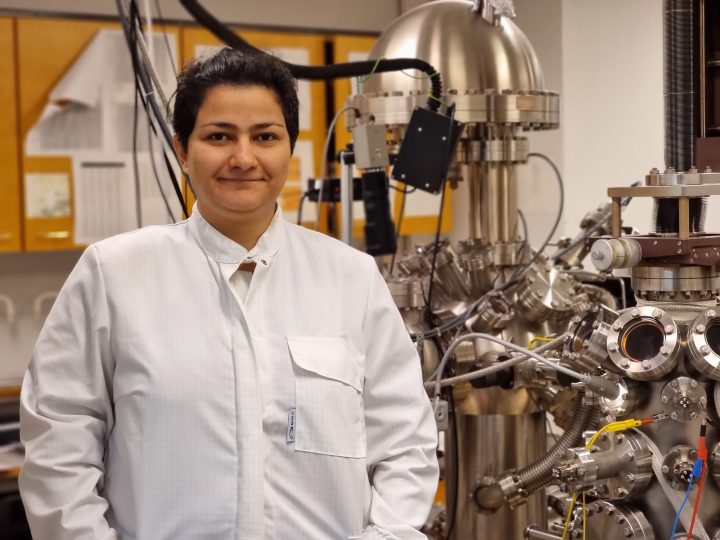Inspired by Materials Physics – interview with doctoral researcher Elmira Jahanshah Rad
Elmira Jahanshah Rad, a doctoral researcher in Materials Physics, works in a research group trying to improve the surface of semiconductors – the substance used everywhere in our daily life, such as processors, solar panels, computers, and smartphones.
During her study time, Elmira has appreciated the Finnish way of working, the freedom to choose own research topics as well as the types of activities, and being close to nature. She has also been active in bringing up issues she thinks needs improvement at the university.
Please introduce yourself and tell us a bit about your academic background?
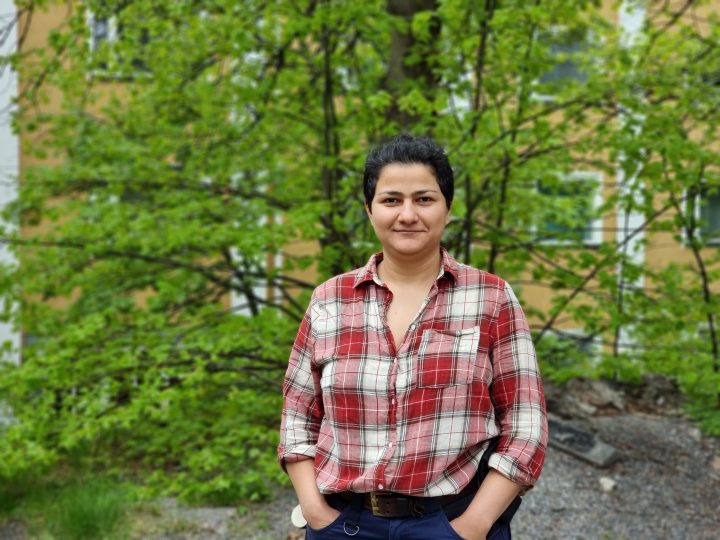
My name is Zahra/Elmira Jahanshah Rad. I received my Bachelor’s degree in Physics from K. N. Toosi University in Iran. I graduated ranked first among bachelor’s students in the program. I was granted entrance to the Master’s degree programme at the same university. In Iran, one needs to take part in a separate entrance exam to be accepted into a Master’s programme. The competition is quite tough! During my MSc thesis, I worked on thin films and high vacuum systems. After graduating, I travelled to Finland for a short visit for personal reasons. I applied for the Ph.D. position in Materials Physics, and I got accepted to the programme.
Describe your research area a little bit. Why are you interested in it?
In my Ph.D. thesis, I am working on semiconductor materials and in our research group, we are trying to improve the surface of semiconductors. Semiconductors are at the heart of new infrastructures in our societies. Without them, we are not able to live our normal lives. Semiconductors are used in processors, solar panels, computers, smartphones, etc. as the main material. I work with ultrahigh vacuum systems, and I do maintenance and repair for such systems, which is fun for me! In addition, I also designed and assembled a unique ultrahigh vacuum system that is related to one of our patents. I am interested in it since I feel happy when I do it! Life becomes boring for me otherwise.
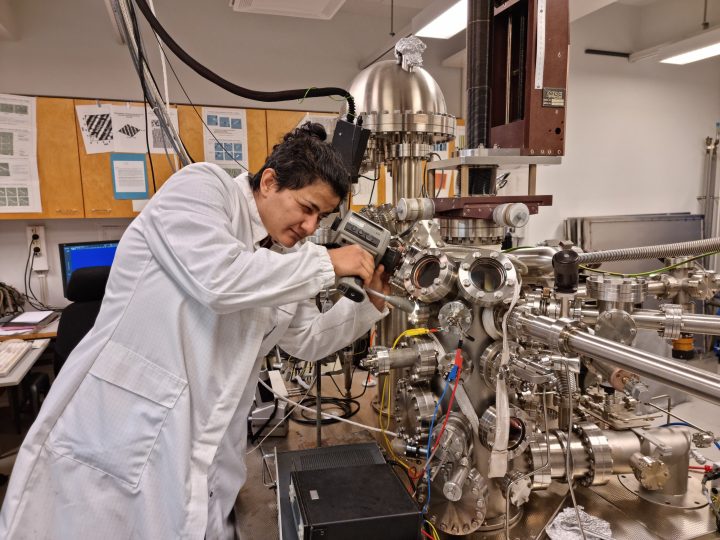
Back in time, what were the positive aspects of UTU that convinced you to apply for a Ph.D. here?
My main motivation when I started searching for a Ph.D. position at UTU was personal. When I found out about our research group and visited its director, I was even more motivated. After being offered the position, I no longer had the personal motivation for the job, but I was unable to resist accepting the position in our research group. As you know, the power distance in Finland is small. When I first discussed with the head of our research group, I felt this. On a larger scale, Finland was a place I wanted to spend 4-5 years of my life doing a Ph.D. People here keep their distance from each other, which I like! They are modest. The vast majority of cities seem to be built in the middle of a forest! In Finnish cities, you live almost in the middle of nature.
What challenges have you faced at the beginning of your doctoral programme and how did you manage to deal with them?
The main challenge was not having a secured income. Of course, I had discussed this with my supervisor upon applying for the position and I knew that I should probably have my own funding at least at the beginning of the programme. In 2014, my supervisor managed to receive a grant for me. This allowed me to start my Ph.D. with funding, but unfortunately, I was not able to move to Finland and the grant expired. When I moved to Finland in 2017, I did not have any funding for the first months, and I started working as a part-time cleaner to cover my living expenses. It was tough to have a physical job and attend classes at the university. I managed to get through that tough situation with huge support at home: my dog, Goopi 😀
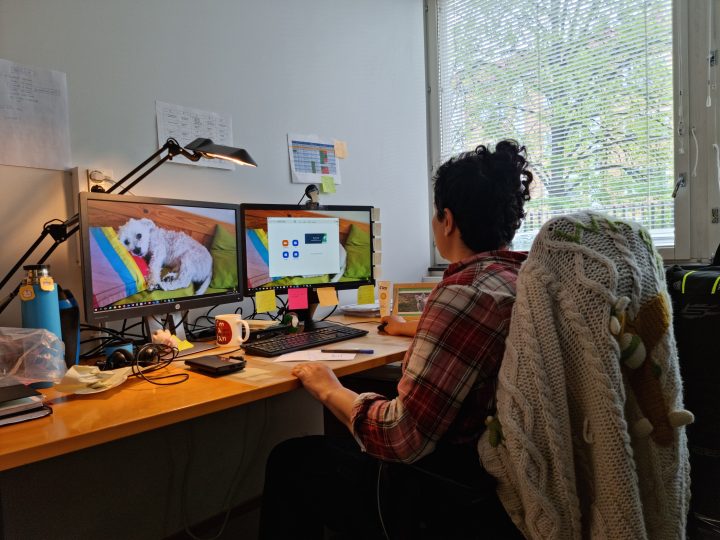
What about now, are you on a salary or a grant, or are you a self-funded student? Do you think it’s difficult to get funding for your living costs?
Excluding the first months of my Ph.D. programme that I did not have any funding, I had funding for the rest of my Ph.D. studies. I have all the fundings that you mentioned: Self-funding, grant, and salary. This is another interesting part of working/living in Finland that I have experienced: you get paid based on your performance and hard work is rewarded.
However, I have a friend who did not have the same experience despite his remarkable performance. In less than 5 years, he will complete his thesis, he has published 11 peer-reviewed scientific articles, and yet he has not received any funding from the university except a ONE-month grant from his Ph.D. programme. He applied for external funding, and he received several grants. But, basically, he is defending his thesis within 58 months. However, he only received funding for 40 months, which is unfortunate.
As a Ph.D. student, what are your achievements up to now?
Firstly, I am a co-inventor in three patent families. Secondly, I have 13 peer-reviewed published articles, 1 under review, 3 ready for submission, and 1 under preparation manuscript. In addition, I received over 70,000 € research and travel grant in addition to employment contracts with the University of Turku as a project researcher. Two courses have invited me to be a speaker. I am a member of the steering committee of the doctoral programme in exact sciences (EXACTUS) at UTU. I was runner-up in the Three Minute Thesis (3MT) competition at UTU, session chair, and winner of the best presentation award at EXACTUS annual seminar 2022. Among all, perhaps the most satisfying achievement is the feedback that I recently received from my supervisor when I asked him what he thinks about my performance and he replied: excellent.
It has been your efforts and commitment to your goals that have enabled you to demonstrate a remarkable performance in the programme, despite all the challenges you faced. Therefore, I would like to ask what exactly motivates you to chase your goals?
In my own eyes, I am a tough supervisor. I am the hardest critic of myself. Most of the time I feel I could be better and do better. This attitude motivates me to try more and perform better. When I want to do something, I do whatever I can to accomplish it and achieve a goal. Even though, as a human, I am restricted with limited options, I believe I have a significant role in who I am and what I do. Long story short, I believe that existence precedes essence!
What is the life of a Ph.D. student look like? Describe one of your typical days.
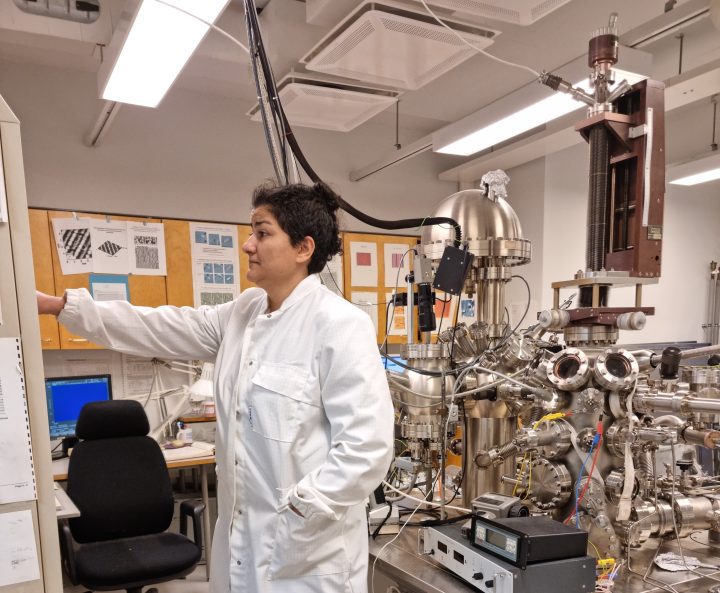
A typical day starts with pre-scheduled tasks. However, usually, there are urgent tasks that need to be taken care of, for example, a device needs maintenance in the lab. So, they will be done as well. As well as coordinating and taking part in meetings, I also conduct different experiments, analyze results, publish results, supervise lab activities, order lab supplies, maintain equipment, update instructions for equipment, and conduct commercialization activities related to patents. I also apply for personal and project funding. These are the tasks I usually have. Your experience as a Ph.D. candidate depends on how much you want to get involved in different tasks. In our research group, I have the freedom to choose my own research topic. I can also choose the types of activities I want to do.
What difficulties have you encountered during your Ph.D. studies here in Turku from the academic point of view?
A challenge that I have already contacted the Rector about, is doing a Ph.D. on a grant at the University of Turku. Grant holders are helping the university not only in terms of budget but also by representing their valuable research work to external funders. Grant holders usually are able to present their research in a more general way. I think they could be considered as scientific ambassadors of the university.
Excluding them from the community by not giving them the same rights and opportunities as the Ph.D. candidates working under contract is a loss for the university. I was not convinced by the rector’s answer, so I am now a member of the steering committee of the Network for Early-Career Researchers in Turku (NERT) to change this situation. For example, there are universities within Finland that provide part-time contracts (10%) for Ph.D. researchers who are working on grants. Initiating this approach would solve the above-mentioned problem.
Also, I love teaching and I did not have much opportunity to teach during my Ph.D. program even though I took part in different pedagogy courses. Another unfortunate fact is that our department (Physics and Astronomy) publishes many articles in high-quality journals, but the budget system does not appreciate this.
I can imagine what you experienced as a Ph.D. student was different from what you expected before starting the programme, but would you still make the same decision if you had back then? If yes, please explain why.
As a steering committee member of NERT, I would prefer the Ph.D. researcher term instead of the Ph.D. student. There are differences between these two titles and the latter works better for us. As I mentioned earlier, I expected more or less what actually occurred. I was prepared for the worst. I would definitely make the same decision.
In our research group, I have the freedom to do my research work. I can also learn from my supervisors and colleagues, and I could do high-quality research work. I have the opportunity to learn a lot about the working principles of the equipment while fixing it. We have modern facilities at the university and established collaborations with different research groups within Finland and abroad. A start-up is established by researchers in our research group, which is going to be a pioneer in compound semiconductor surface passivation.
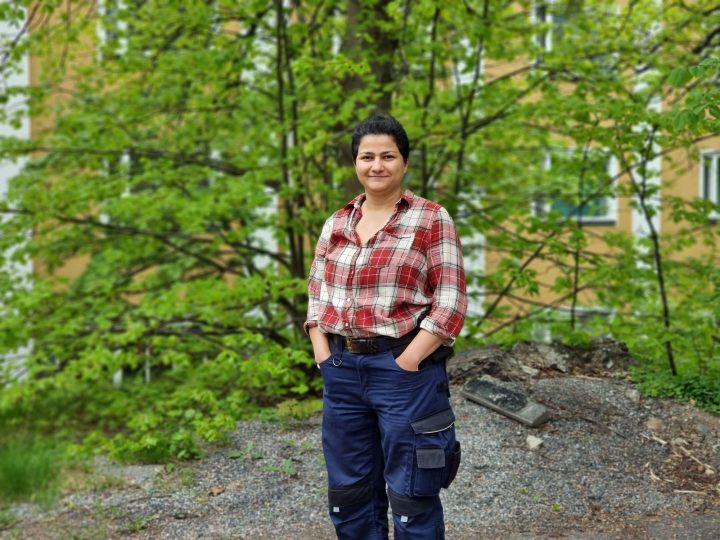
Can you imagine your future after graduation here in Finland?
To a high extent, yes. As I explained above, during my Ph.D. in our research group, I had the opportunity to build my network in academia and the industry.
What are your future plans after completing your Ph.D.?
I have different options. On one hand, I could possibly work in the start-up that we plan to establish based on our patents. On the other hand, I could stay in academia if I manage to get funding for a project related to my latest patent and research topic. Another option would be to work outside academia where I could use the expertise I acquired during my doctoral program. Depending on the situation and timing, different options could be available.
Last updated: 20 July 2022
Search similar blog posts by categories and keywords:

